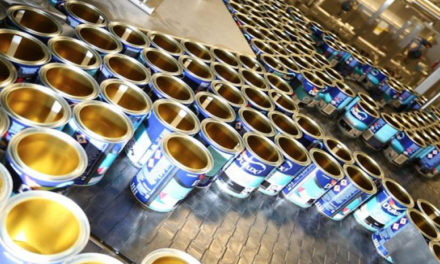High energy prices, rising interest rates and falling demand point to risk of recession, say analysts
Business activity contracted at its fastest pace in two years in December as the high cost of living restricted household spending and companies cut investment, raising the prospect of a UK recession.
The services sector, which accounts for about three-quarters of private sector output, faced the biggest squeeze since the second Covid-19 lockdown, according to a closely watched survey. A slump in manufacturing output dating back to last August continued in December.
Illustrating the effects of high energy prices, rising interest rates and falling consumer demand, business reported “a sustained downturn” in new orders that meant they were churning through backlogs of old orders to maintain staffing levels.
The S&P Global/Cips flash purchasing managers’ index, which includes 80% of the survey’s responses from the services and manufacturing sectors, dropped below the level expected by City economists to 47.8 from 49 in December. A reading below 50 indicates activity contracted.
Chris Williamson, the chief business economist at S&P Global Market Intelligence, said industrial disputes, staff shortages, export losses, the rising cost of living and higher interest rates “all meant the rate of economic decline gathered pace again at the start of the year”.
He said: “Weaker than expected PMI numbers in January underscored the risk of the UK slipping into recession.”
Britain is expected by many economists to suffer a recession in the first half of 2023 before a modest recovery later in the year.
Inflation, which has stayed above 9% since last April, is forecast to fall back before the end of the year, taking the pressure off the Bank of England to keep raising its base rate much above the current 3.5%. Headline annual inflation in the UK is currently 10.5%, well above the Bank’s 2% target.
Firms reported that the prospect of household budgets coming under less intense pressure from the summer onwards from inflation meant that they expected their own situation to improve as the year progresses.
The report said: “The latest reading pointed to the strongest degree of optimism for eight months.
“Higher levels of confidence were recorded in both the manufacturing and service sectors, driven by hopes of an improving global economic backdrop and lower domestic inflationary pressures over the course of 2023.”
The Chinese and US economies are forecast to improve later this year while the eurozone is on course to avoid a recession.
More immediately, firms reported hiking their prices to pass on more than 18 months of rising raw materials and energy costs with the addition of recent increases in staff wages.
Williamson said: “There were some bright spots in the survey, including improved business expectations for the year ahead and a further cooling of inflationary pressures.
“The overall rate of decline indicated also remains only modest. But this is undeniably a disappointing start to the year for the UK, reflecting not just short-term hits to growth such as strike action and the rise in energy costs due to the Ukraine war, but also highlighting the ongoing damage to the economy from longer term structural issues such as labour shortages and trade woes linked to Brexit,” he added.
To read the original article please click here: https://www.theguardian.com/business/2023/jan/24/uk-business-activity-cost-rises-energy-interest-rates





